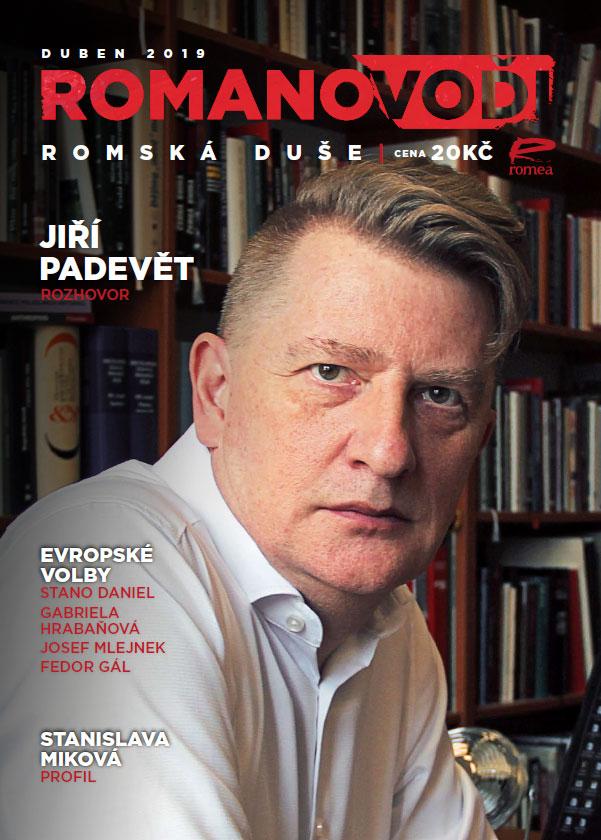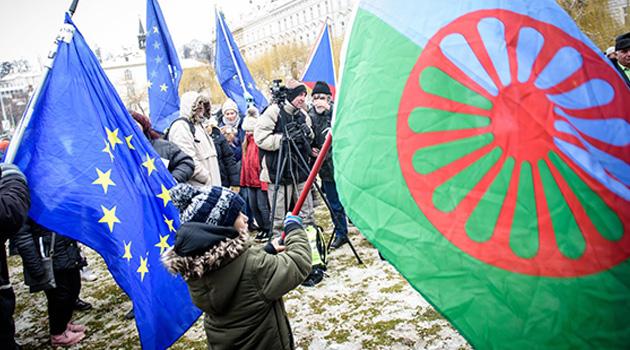If you’ve ever seen Barry Levinson’s timeless film “Wag the Dog”, about the US presidential elections,then you understand how voters can be manipulated. We asked political scientist Josef Mlejnek, Jr and sociologist Fedor Gál about how voters’ strings are being pulled prior to the elections to the European Parliament (EP).
Josef Mlejnek, Jr: The infernal kitchen of ignorance
The elections to the EP are approaching fast, and therefore the activities of those who produce different fake news items is also increasing. The news server Politico has drawn attention to the fact that no small part of the discussions happening on social media ahead of the EP elections are being dominated through the aid of the feverishly-published posts from a small number of social media users and accounts inclined to favor populist parties.
The blaze at the cathedral of Notre-Dame in Paris, France earlier his year sparked an eruption of fake news items and unsubstantiated allegations, above all about an alleged “Muslim footprint”, undoubtedly with the aim of influencing European public opinion ahead of these crucial elections. Facebook has learned the lesson of the US elections and Brexit and has begun to combat disinformation more, for example, by currently limiting the visibility in its “newsfeed” function of groups where posts considered by auditors to be untrue have appeared repeatedly.
In and of itself, that effort may not be enough to limit fake news influence. Critics of the current course the EU is on, in any event, have long advised that the upcoming elections will bring about a political earthquake in their favor.
We will see whether that comes to pass – in the Czech Republic the main problem of the EP elections is low turnout. Last time, in 2014, just slightly more than 18 % of voters took advantage of their right to vote (before that, in 2004 and 2009, at least 28 % did).
This country is not the only one where EP elections are unattractive. EU-wide voter turnout during the EP elections has constantly declined since 1979, to 42.5 % overall last time.
The adherents of nationalist or populist parties do not cast ballots often in the EP elections, which is determined by the fact that they do not see the point in choosing the parliament of an institution whose leaders are bitterly criticized by the leaders of the groups they prefer. The headquarters of these populist entities will above all aim at getting their adherents to the polls in the first place.
That makes it all the more important for those who oppose such parties to cast their own ballots. The most painful aspect of almost the entire electorate, however, is its ignorance.
According to a survey performed by the Kantar CZ agency for the public broadcaster Czech Television that was published in February, just one-third of Czechs knew the EP elections were just around the corner. The survey also discovered fatal blank spots when it came to whether people even knew the names of the Czech Republic’s 21 MEPs.
Just 29 % of Czech respondents managed to name at least one current MEP. People also just have vague notions about how the EU functions, what its institutions are, and what their powers are.
Unfortunately, this feeds the popularity of the allegations made about “unelected” Brussels elites trampling the sovereignty of nation-states and their citizens (for example, by banning powerful vacuum cleaners) and allegedly striving to alter European society by allegedly inviting crowds of immigrant Muslims here. The EU is certainly a complicated institution, but in order to get at least a basic outline, or to familiarize oneself with the names of the current Czech MEPs and their work, it essentially just takes a few clicks online, and a bit of time and attention.
Unfortunately, most Czech citizens will never click in that direction – they prefer to play sophisticated computer games or to look for goods in e-shops. If people don’t change their approach, though, all the improving of the algorithms on Facebook will not prevent the dissemination of fake news, as it is primarily shared by the average social media user, led by his or her own ignorance.
Fedor Gál: Riding on ancient human instincts
There is no doubt, on the basis of the existing analyses, that the campaign for the EP elections is being joined by disinformers, both from abroad – by this I mean especially the pro-Russian trolls and media – and of domestic provenance. It is alarming that even our domestic “elites” have joined the campaign of the disinformers as well.
Naturally, I am not bothered by those who have critical opinions, or opinions different to my own. What bothers me are the blatant provocations and lies.
It is alarming that people such as former Czech President Klaus, his son, Czech MP Klaus, Jr, and current Czech President Miloš Zeman have decided to ride this trend. To say nothing of Czech MP Okamura and those like him.
These people are becoming, in my opinion, security risks to the Czech Republic. I am not interested in what is motivating any of them.
What I do know for certain is that the EP elections are important. It is apparent that those opposed to EU unity and to the entire civilizational circle of Euro-Atlantic relations are actually mobilizing themselves on a massive scale.
If the chaos that US President Donald Trump has sparked on the international scene hasn’t convinced you of this yet, you should at least read the events around Brexit with great attention. Intimidating refugees and Romani people… all of this is just these elites riding on the ancient human instincts of anxiety and fear.
Once one succumbs to those instincts, one cannot absorb rational arguments and succumbs instead to manipulation. Currently the struggle against disinformation, against Chinese and Russian interests, against lies and psychopaths on the Internet, does not appear to have a victorious end in sight.
However, if we stop defending ourselves, that will be the beginning of the end, and it could have immense, long-term consequences. At this moment, it is crucial to understand this: The EP elections are important!
Do not ignore the opportunity they represent! Democracy is not manna from Heaven, it is a constant struggle.
This struggle is one that is worth engaging in nonetheless. People such as myself, who have survived the Holocaust, Communist persecution, and actual lack of freedom, know what we are talking about.
First published in a special issue of Romano voďi magazine focused on the elections to the European Parliament. The special issue was published with support from the German foundation “Remembrance, Responsibility and Future” (EVZ).


